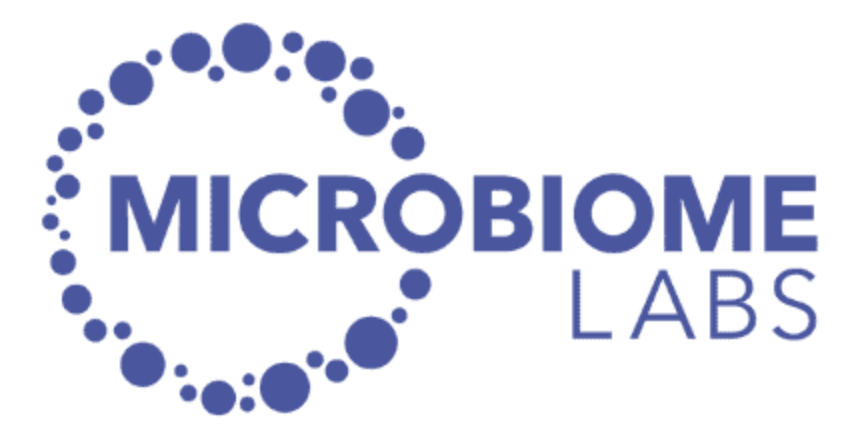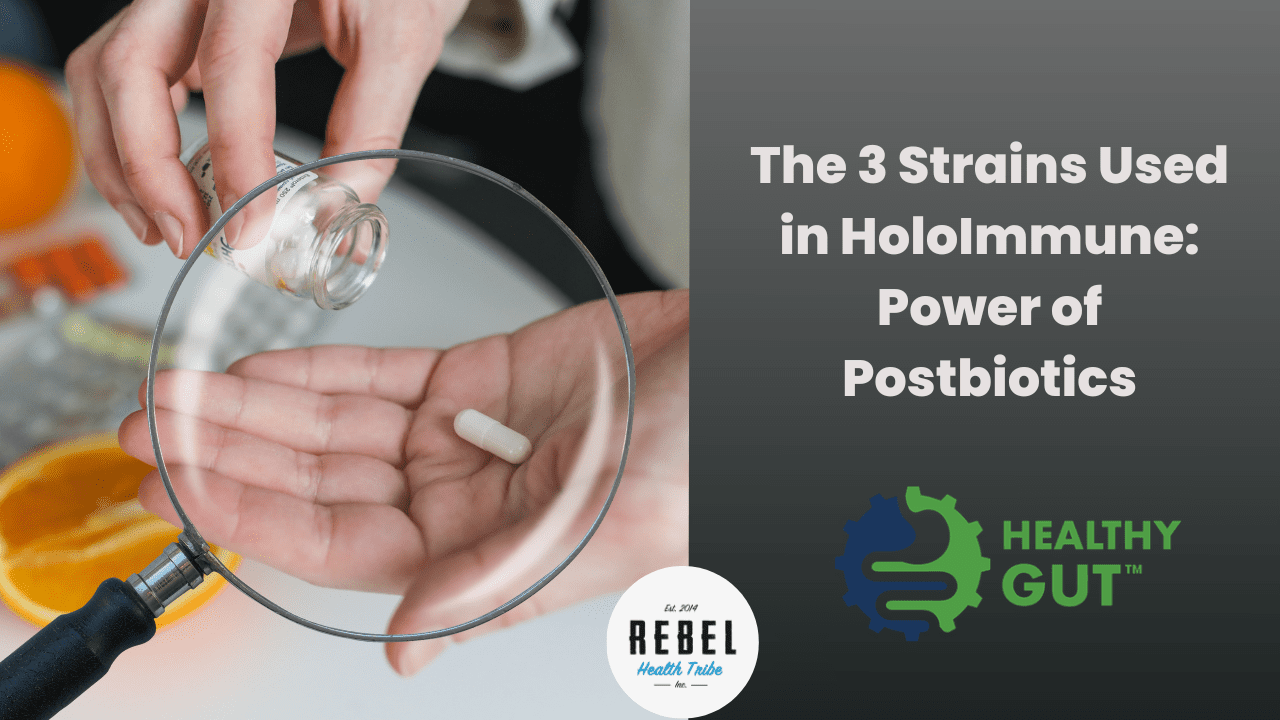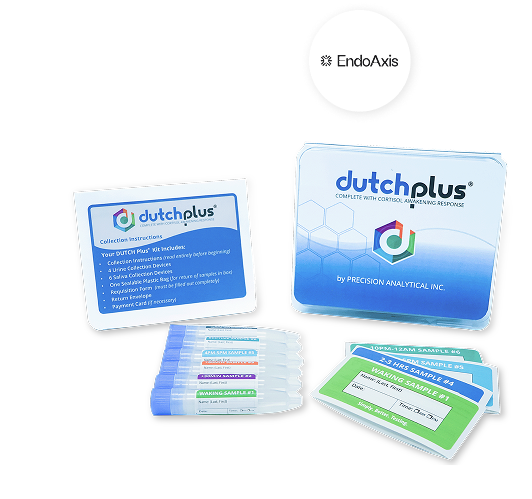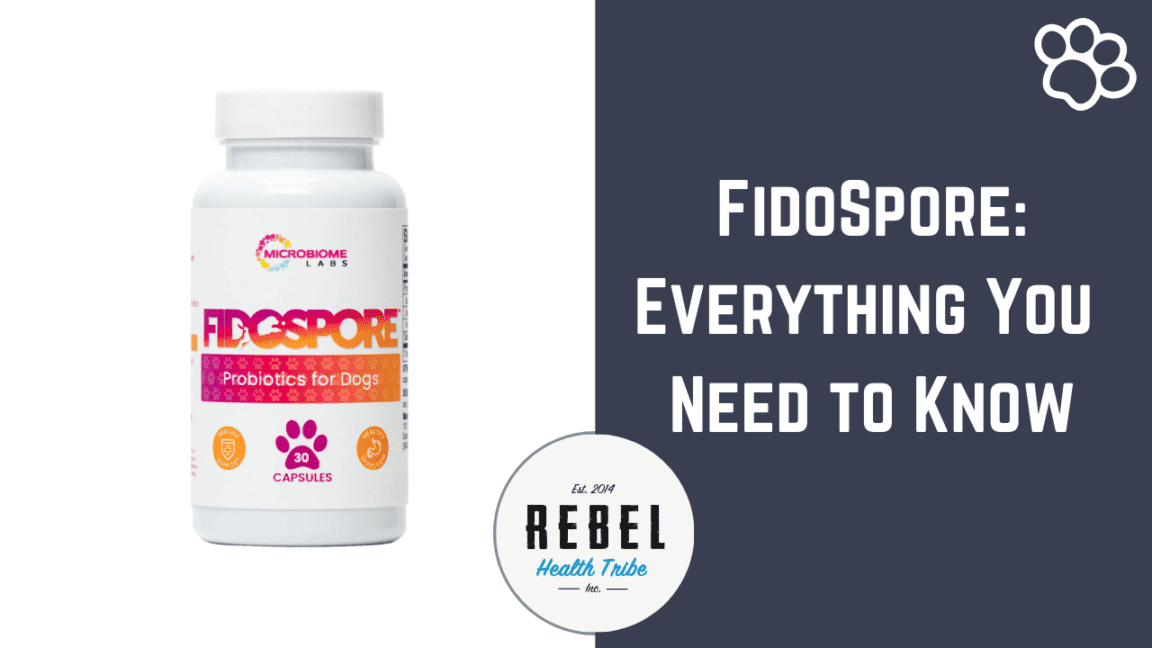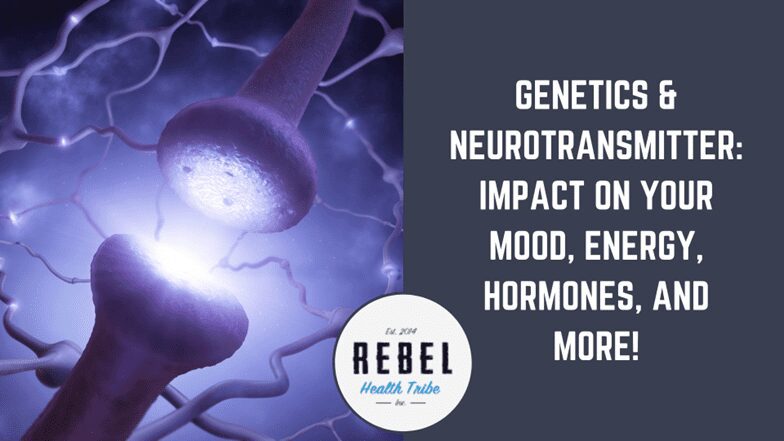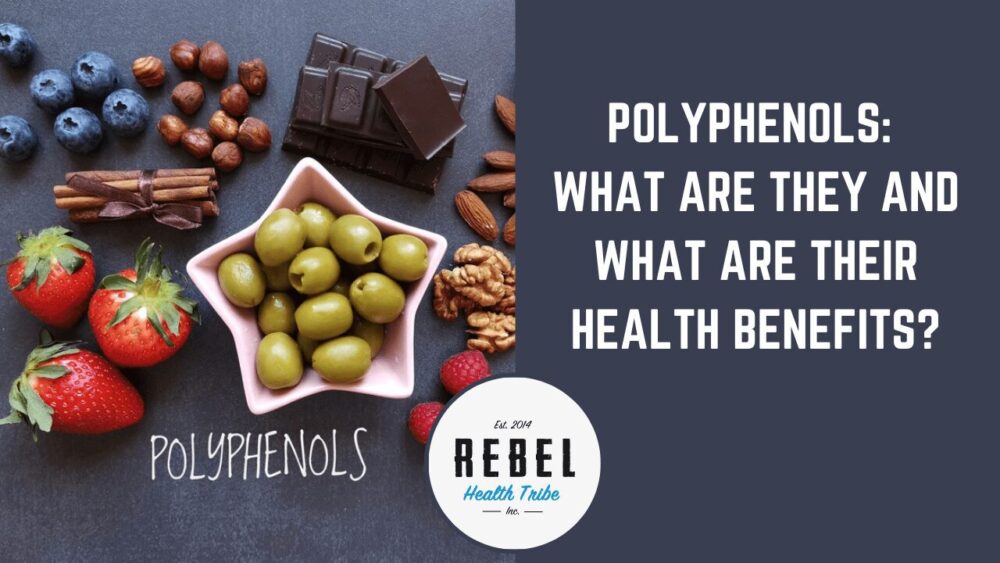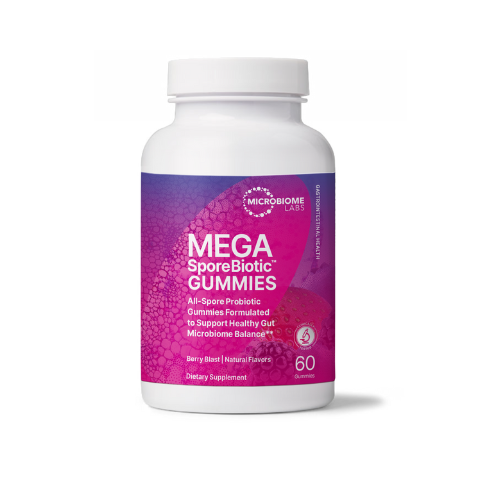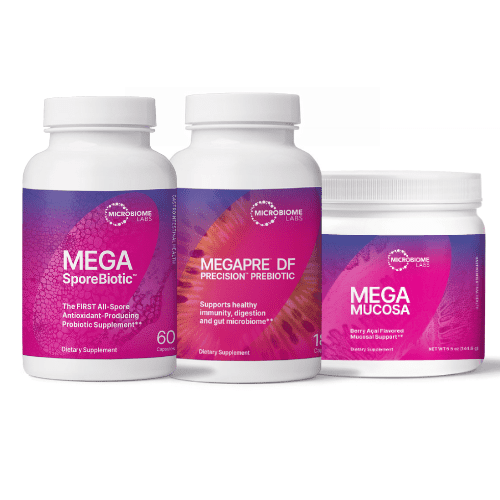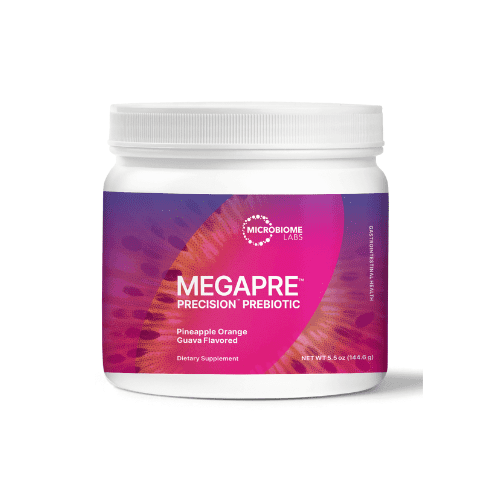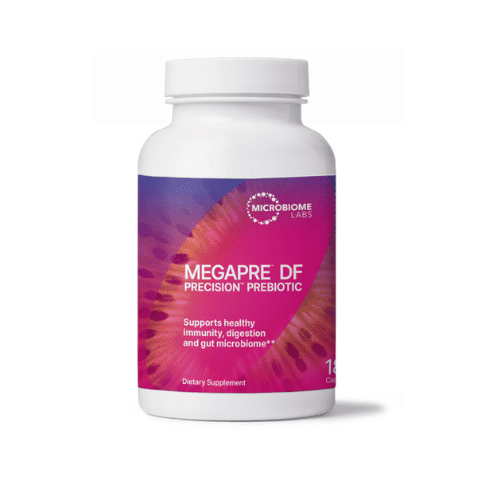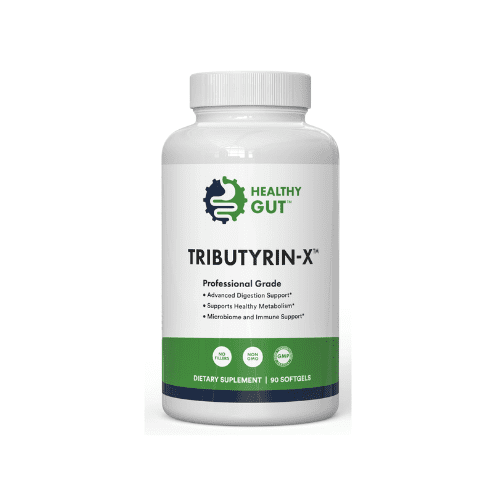FidoSpore™ Background
Having a dog in your life is not only beneficial to your own mental health but also really helpful for your microbiome. Dogs in particular improve, diversify and strengthen the human gastrointestinal tract and microbiome. This occurs when pups get an itch to see and explore their natural environment. There they collect microbes in their nose and fur, and bring them back into your home. This domesticated pet-environment interaction positively impacts the dogs microbiome as well. However, there are times when a pet’s gastrointestinal tract and microbiome do get out of balance, which is where FidoSpore comes into play (pun intended). FidoSpore supports digestive health in pets and is the first probiotic supplement of it’s type.
Ingredients
FidoSpore is a clinically proven product that contains a unique blend of Bacillus subtilis HU58, Bacillus licheniformis (SL-307), and Pediococcus acidilactici. Bacillus subtilis HU58 and Bacillus licheniformis (SL-307) are both spore-forming probiotics that produce digestive enzymes, support the immune system, produce short-chain fatty acids, all of which help maintain the gastrointestinal barrier. Pediococcus acidilactici is a lactic acid-producing bacterium that has a wide range of benefits in dogs. It has been used to treat dogs with digestive symptoms like constipation and diarrhea, as well as dogs infected by parvovirus. FidoSpore™ also contains defatted grass-fed beef liver extract added for flavor and aroma.
FidoSpore does not contain wheat, gluten, dairy, soy, nuts or chicken.
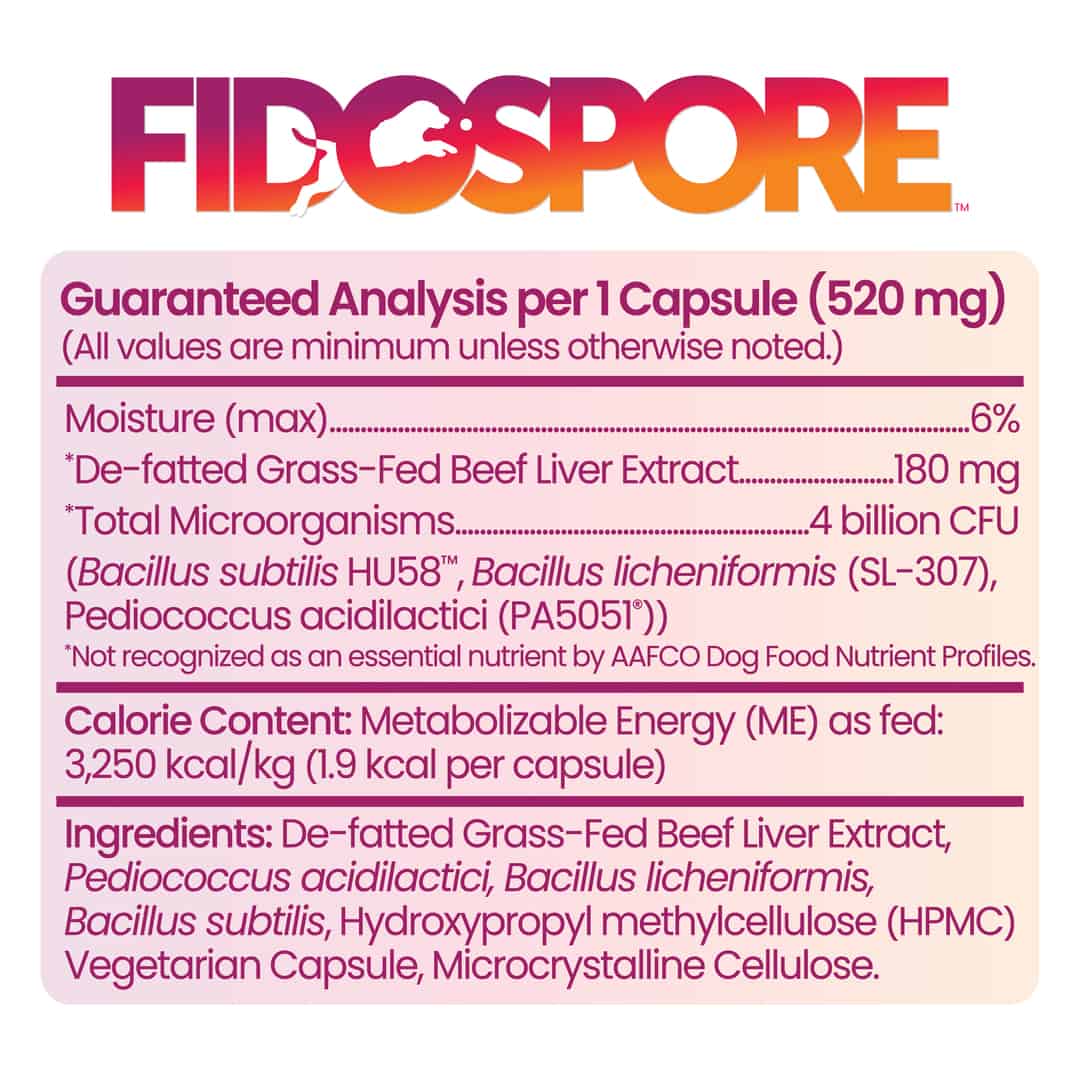
Form & Function
FidoSpore works similarly in pets as probiotics do in humans. Restoring the microbial balance of a pets gastrointestinal tract is important for maintaining a happy healthy pet. Pet probiotics have remarkable abilities to support digestive health, particularly in dogs. Probiotics work with the animal’s immune system to maintain overall function. Research highlights that probiotics like FidoSpore™ are effective, safe, and cost effective.
Applied Research & Clinical Studies
A controlled clinical trial in dogs and probiotics concluded that the use of Bacillus spores and Pediococcus were found to reduce acute diarrhea in dogs (2). Use of the probiotic Bacillus subtilis has been found to improve immunity in dogs (3). Interestingly enough dogs provided with Pediococcus fermented dog food improved their fecal scores and thereby improving gastrointestinal microbial diversity (8). There is even some research showing that a diverse microbiome in Irish Terriers helps reduce the instance of gluten sensitivity (9). Dogs are also susceptible to parvovirus infection as puppies. Those dogs that survived parvovirus as puppies have a higher risk of developing chronic gastrointestinal problems as adult dogs. This has led researchers to actively investigate probiotic therapy in these situations (7).
Research is showing that our furry feline friends also benefit from a diverse microbiome. Like in humans, a cat’s microbiome stimulates the immune system and provides nutritional benefits that positively impacts their health. Several nutritional studies have shown that a felines microbiome can be modulated by the amount of soluble fibers (prebiotics) and macronutrients in the diet. Initial clinical studies demonstrate the presence of dysbiosis in cats leading to inflammatory bowel disease (4). Additionally, the feline microbiome appears to be determined by age when diet and environment are controlled for (5).
Indications
- Constipation
- Diarrhea
- Parvovirus
- Inflammatory bowel disease
Suggested Use
For both dog and cats: Add one (1) capsule to your pet’s food once daily. Capsules can be opened and sprinkled onto food or consumed whole. Dosing is not dependent on weight.
Advantages of FidoSpore™
There are several research studies showing how microbial dysbiosis affects our pets gastrointestinal tract and negatively impacts their overall health. Therefore, inviting an opportunity for us pet owners to come to the rescue with FidoSpore. Use of FidoSpore helps our furry friends maintain a healthy gastrointestinal tract so they may live long happy lives as our best friends.
Contraindications
There are no known contraindications for use of FidoSpore. Please consult with your veterinarian if you have questions, concerns or require additional information.
Applied References
- https://microbiomelabs.com/home/products/fidospore/
- Herstad, H.K., Nesheim, B.B., L’Abée‐Lund, T., Larsen, S. and Skancke, E. (2010), Effects of a probiotic intervention in acute canine gastroenteritis – a controlled clinical trial. Journal of Small Animal Practice, 51: 34-38. https://doi.org/10.1111/j.1748-5827.2009.00853.x
- Vogt CM, Armúa-Fernández MT, Tobler K, Hilbe M, Aguilar C, Ackermann M, Deplazes P, Eichwald C. 2018. Oral application of recombinant Bacillus subtilis spores to dogs results in a humoral response against specific Echinococcus granulosus paramyosin and tropomyosin antigens. Infect Immun 86:e00495-17. https://doi.org/10.1128/IAI.00495-17.
- Minamoto, Yasushi & Hooda, Seema & Swanson, Kelly & Suchodolski, Jan. (2012). Feline gastrointestinal microbiota. Animal health research reviews / Conference of Research Workers in Animal Diseases. 13. 64-77. 10.1017/S1466252312000060.
- Deusch O, O’Flynn C, Colyer A, Swanson KS, Allaway D, et al. (2015) A Longitudinal Study of the Feline Faecal Microbiome Identifies Changes into Early Adulthood Irrespective of Sexual Development. PLOS ONE 10(12): e0144881. https://doi.org/10.1371/journal.pone.0144881
- Christian Apolinaris Lombogia, Max Tulung, Jimmy Posangi, Trina Ekawati Tallei, “Bacterial Composition, Community Structure, and Diversity in Apis nigrocincta Gut”, International Journal of Microbiology, vol. 2020, Article ID 6906921, 8 pages, 2020. https://doi.org/10.1155/2020/6906921
- Kilian E, Suchodolski JS, Hartmann K, Mueller RS, Wess G, Unterer S. Long-term effects of canine parvovirus infection in dogs. PLoS One. 2018 Mar 16;13(3):e0192198. doi: 10.1371/journal.pone.0192198. PMID: 29547647; PMCID: PMC5856261.
- Lee, Eunchae et al. “Pediococcus spp.-fermented chicken meat for dogs.” Journal of animal science and technology vol. 62,1 (2020): 84-93. doi:10.5187/jast.2020.62.1.84
- Hall, E J, and R M Batt. “Abnormal permeability precedes the development of a gluten sensitive enteropathy in Irish setter dogs.” Gut vol. 32,7 (1991): 749-53. doi:10.1136/gut.32.7.749
- Fidospore research https://www.bellaandduke.com/product/fidospore-probiotic-for-cats-dogs/

